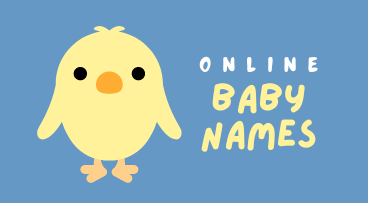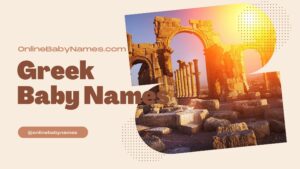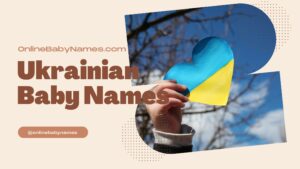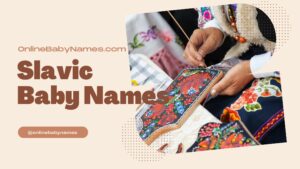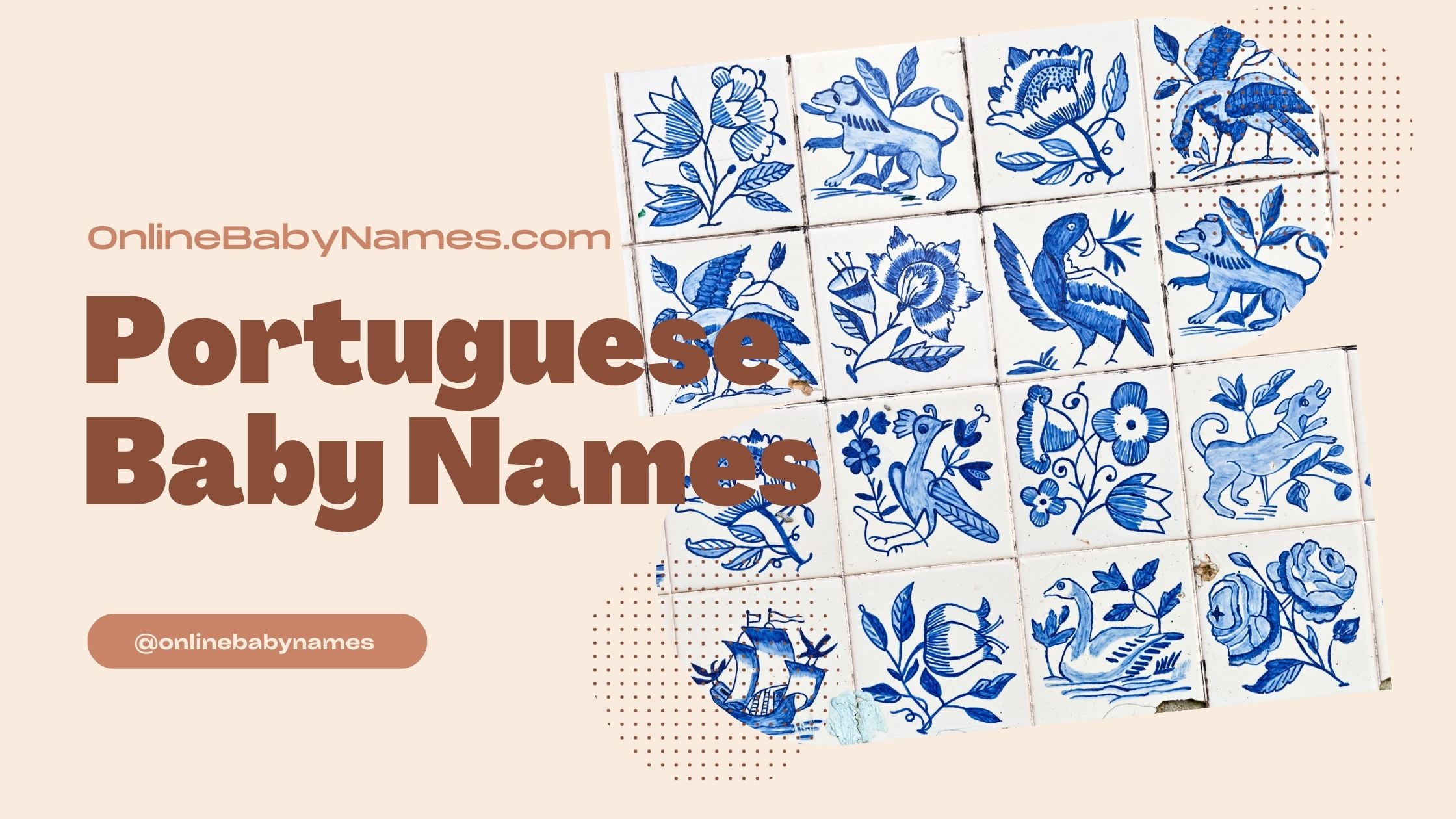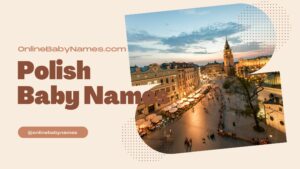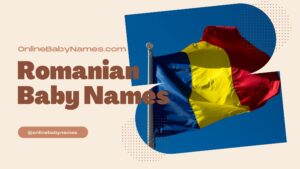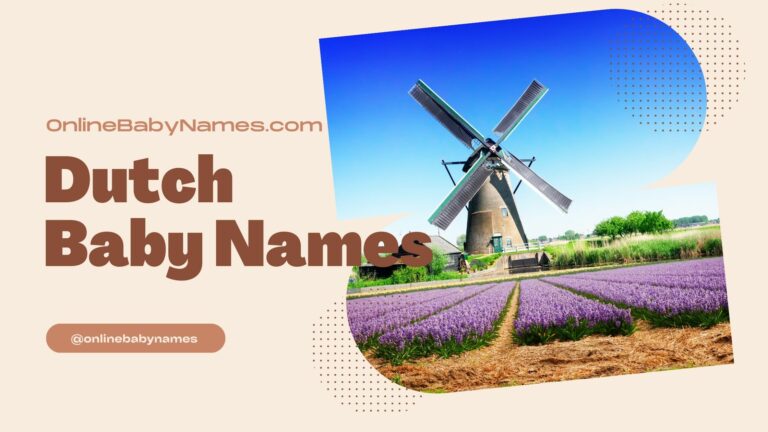
Looking for a unique and eye-catching baby name? Dutch baby names might just be your answer. These monikers hold a distinct linguistic charm and often carry special meanings behind them. As the Netherlands is known for their progressive and individualistic culture, their baby names tend to reflect those same values.
Selecting the perfect name for a child is a crucial part of their journey into life. Dutch baby names offer a striking blend of tradition and modernity, which is sure to pique the interest of parents seeking something a bit different. In today’s increasingly globalized world, choosing a culturally rich name might also foster a sense of connection and curiosity in your little one.
In this article, I’ll delve into a variety of Dutch baby names, including their meanings and origins. From timeless classics to more contemporary choices, we’ll explore what makes Dutch monikers so appealing and how they can offer a memorable, one-of-a-kind identity for your new bundle of joy.
Understanding Dutch Baby Names
When it comes to Dutch baby names, you’ll find that they have a unique charm, and often reflect the country’s rich cultural heritage. In this section, I’ll delve into the origins and meanings of some popular Dutch names, along with some current trends in Dutch baby-naming practices.
Historical Influences
The Netherlands has a diverse history, with various cultures and languages shaping its identity over time. In terms of baby names, you’ll notice influences from Germanic, French, and English traditions, along with unique Dutch variations. Some Dutch surnames, for example, have clear ties to occupations or geographical locations, such as Van Dijk (from the dike) or Smit (smith).
Name Lengths
Dutch baby names tend to be shorter compared to those in other countries. Two-syllable names, like Bram or Luna, are quite popular. You’ll also find a lot of single-syllable names, like Jan, which is equivalent to John in English.
Unique Character Combinations
One notable feature of Dutch names is their unique character combinations in spellings. Some examples include:
- Double vowels: Aart, Eefje
- Consonant clusters: Sterre, Sjors
These distinctive combinations might seem unusual to non-Dutch speakers, but they are a typical aspect of Dutch names and contribute to their charm.
Names Based on Nicknames
Many Dutch names have their origins from a tradition of giving baby names based on nicknames rather than formal names. Even today, you’ll find Dutch parents choosing names like Niek (a diminutive of Nicolaas) or Rens (short for Laurentius) as standalone names.
Current Naming Trends
In recent years, there has been a shift towards more international names, as parents in the Netherlands increasingly look for names that are easily pronounceable and recognizable beyond their borders. However, this doesn’t mean traditional Dutch names are no longer in use. Names like Daan (Daniel) and Lotte (Charlotte) remain popular choices for Dutch babies.
To help you get a better idea of the most popular Dutch baby names, here’s a table with the top 5 names for boys and girls in 2019:
| Gender | #1 | #2 | #3 | #4 | #5 |
|---|---|---|---|---|---|
| Boys | Daan | Noah | Sem | Luuk | Levi |
| Girls | Emma | Tess | Sophie | Zoe | Luna |
In summary, Dutch baby names come from a rich history, characterized by unique spelling patterns, and have evolved over time while still retaining timeless classics. As a parent considering a Dutch name for your little one, remember that these names mirror not only personal taste but also a sense of cultural heritage.
Popular Dutch Names for Boys
When it comes to choosing a Dutch baby name for a boy, there’s an abundance of popular and unique names to consider. Below, I’ve compiled a list of some of the most well-loved Dutch names, many of which showcase that charming and distinctive Dutch flavor!
Some of the top Dutch names for boys include:
- Daan: A popular Dutch name which is a diminutive form of Daniel, meaning “God is my judge.” With a strong significance and a memorable sound, it’s easy to see why Daan tops the charts.
- Sem: Another highly favored Dutch name, Sem is a variation of Shem, originating from the Hebrew name שֵׁם (Shem), which means “name” or “renown.” Sem is often chosen for its short, sweet, and easily pronounceable characteristics.
- Bram: This name finds its roots in the Bible, as it’s a short form of Abraham. Bram signifies “father of many” and has steadily gained popularity over the years.
- Luuk: An adored Dutch name stemming from Lucas, Luuk means “from Lucania” or “bringer of light.” Its simple yet impactful meaning, along with the fact that it’s easy to pronounce, make it a big hit.
Let’s look at these names by their rankings in popularity:
| Name | Popularity Rank |
|---|---|
| Daan | 1 |
| Sem | 2 |
| Bram | 3 |
| Luuk | 4 |
Additionally, there are lovely Dutch names which might feel more unique for those seeking out-of-the-ordinary options:
- Joris: A variation of George, the name Joris signifies “farmer” or “earthworker.” This sturdy and grounded name exudes a certain earthiness, making it a standout choice.
- Sander: A shortened form of Alexander, Sander denotes “defender of mankind.” This strong-sounding name is a great option for parents seeking something classic yet distinctive.
- Stijn: Derived from the name Augustine, Stijn translates to “exalted one” or “to increase.” With historical roots and an intriguing meaning, Stijn is an excellent choice for a Dutch-inspired name.
- Kasper: Related to the name Casper, Kasper means “treasurer” or “keeper of the treasure.” Its unique pronunciation and distinct spelling make it an appealing choice for a Dutch name.
By exploring these popular and unique Dutch names for boys, parents can find inspiration that adheres to Dutch tradition while ensuring their child’s name stands out. Whether it’s through its strong meaning or memorable pronunciation, each name carries its own distinctive charm.
Popular Dutch Names for Girls
When it comes to Dutch baby names for girls, you’ll find a variety of unique and charming options. Some names have historical significance, while others reflect Dutch culture and traditions. In this section, I’ll introduce you to some popular Dutch names for girls, offering a bit of background on the meanings and origins of each name.
Sophie is a classic Dutch girl’s name that has been popular for generations. It’s derived from the Greek word sophia, meaning “wisdom.” Sophie is a name that’s both elegant and timeless, making it a favorite choice for many parents.
Another popular choice is Emma. This name has Germanic roots and means “universal” or “whole.” Emma has been a go-to name for many Dutch parents in recent years, in part because of its simplicity and charm.
Tess is a modern and stylish Dutch name that also has an interesting background. It’s a short form of the name Theresia, which has Greek origins and means “to harvest” or “gatherer.” This name is particularly popular among families with agricultural ties.
Additionally, Dutch parents often opt for Fleur. As you might have guessed, Fleur means “flower” in French. This name is often chosen for its delicate and graceful connotations.
For those interested in more traditional Dutch names, Wilhelmina is a great option. Wilhelmina is the female form of Wilhelm, which means “will or determination” and “helmet or protection.” This strong name has a rich history, as it was the name of the Dutch queen Wilhelmina, who ruled from 1890 to 1948.
In terms of popularity, here are the top five Dutch baby girl names in 2020:
| Rank | Name |
|---|---|
| 1 | Sophie |
| 2 | Emma |
| 3 | Tess |
| 4 | Fleur |
| 5 | Mila |
Some other Dutch girl names worth considering include:
- Eva: Derived from the Hebrew Chava, meaning “to breathe” or “to give life”.
- Mara: Means “bitter” in Hebrew, but also has connections to the Latin mare, meaning “sea”.
- Jasmijn: The Dutch spelling of the name Jasmine, which comes from the Persian word “yasamin,” referring to the jasmine flower.
- Lotte: A diminutive form of the name Charlotte, typically used in the Netherlands and Germany.
In summary, the world of Dutch baby names for girls offers a blend of traditional, modern, and unique options. Each name holds its distinct charm and character, making it easy to find the perfect match for your little one.
Traditional Dutch Naming Conventions
When it comes to Dutch baby names, it’s important to understand the traditional naming conventions used in the Netherlands. In this section, I’ll delve deeper into these conventions and provide some insight into how Dutch names are typically structured.
One important aspect of Dutch names is the patronymic system. Traditionally, Dutch children were given a first name and a patronym, which is a name derived from their father’s given name. For instance, a man named Jan would have a son named Pieter Janszoon, and his daughter might be named Maria Jansdochter. However, this practice has largely been replaced with the use of surnames.
Family surnames in the Netherlands can be traced back to the 16th and 17th centuries, when they started to appear in official documents. There are several different categories of Dutch surnames, which can provide insight into the ancestry and origins of a family:
- Patronymic surnames: These surnames, like the aforementioned patronyms, are derived from the first name of an ancestor. Examples include Jansen (son of Jan) and Pieters (son of Pieter).
- Toponymic surnames: These surnames indicate a geographical origin and are often derived from the names of towns, regions, or geographical features. Examples include Van den Berg (from the mountain) and Van der Meer (from the sea).
- Occupational surnames: These surnames refer to the profession or trade of an ancestor. Examples include Bakker (baker) and Smit (smith).
- Nickname surnames: These surnames are based on a characteristic or personal trait of an ancestor. Examples include De Lange (the tall) and De Groot (the big).
In addition to the family surnames, Dutch names often include a tussenvoegsel, or a preposition, such as “van” (of), “de” (the), or “te” (at). These prepositions are used to indicate a connection with a certain place or social status, and they are not capitalized when used in combination with the surname.
For example, someone with the surname “Van den Berg” would be written as “Jan van den Berg.”
When choosing a Dutch baby name, it’s also useful to know about some common naming customs in the Netherlands:
- Dutch parents often name their children after family members, particularly grandparents.
- Most Dutch names have both a formal and a diminutive form. For example, a child named “Johannes” might be called “Jan” or “Hans” by family and friends.
- Dutch names often have a Protestant or Catholic influence, as a result of the country’s religious history.
Understanding these traditional Dutch naming conventions can help you better appreciate the rich history and cultural significance of Dutch baby names as you select the perfect name for your little one.
Dutch Royal Family Names
When looking at Dutch baby names, it’s impossible to ignore the influence of the Dutch Royal Family. Their names have been popular for centuries and remain some of the most sought-after monikers in the Netherlands. Let’s dive into some of these Dutch royal names and the reasons behind their everlasting appeal.
Willem has been a particularly popular name among the royals; in fact, there have been numerous Kings Willem in Dutch history. It’s definitely a name that carries with it a sense of strength and prestige. However, Willem can also be found in various forms such as William and Wilhelm.
Some other common names within the Dutch Royal Family include:
- Frederik
- Maurits
- Constantijn
- Alexander
- Jan
- Maria
These names have a classic, elegant air to them and are highly regarded in the Netherlands.
Apart from the male names, there are also beautiful female names associated with the Dutch Royal Family. Beatrix, for one, is a gracefully regal name, which belonged to the former Queen Beatrix of the Netherlands. Alongside Beatrix, there are other notable names popular among the Dutch, such as:
- Juliana
- Máxima
- Margriet
- Ariane
- Catharina-Amalia
Here’s a breakdown of some popular Dutch royal names and a brief history behind each:
| Name | Origin | Brief History |
|---|---|---|
| Willem | Dutch, German | Derived from the name Wilhelm, meaning “will, desire” and “helmet, protection”. |
| Beatrix | Latin | Derived from Viatrix, meaning “voyager, traveler” or “blessed”. She became queen in 1980, leading the Netherlands for 33 years. |
| Juliana | Latin | From the name Julius, it means “youthful” or “downy”. Queen Juliana ruled from 1948 – 1980. |
| Máxima | Spanish | Meaning “greatest” or “most extraordinary”. Máxima has been the Queen of the Netherlands since 2013. |
It’s worth mentioning that Dutch royal names also bear similarities with other European monarchies, indicating a shared history and cultural influences. Ultimately, those in search of a strong, historical name for their baby can’t go wrong with these timeless Dutch Royal Family names. They carry an air of elegance and sophistication that’s sure to stand the test of time.
Gender-Neutral Dutch Baby Names
When it comes to choosing a baby name, opting for a gender-neutral option is a popular and meaningful choice for many parents. Dutch baby names provide plenty of options that work well for both boys and girls. I’ve compiled a list of some gender-neutral Dutch baby names to consider, along with their meanings and origins.
One name that’s gained international popularity is Robin. Originating from the Dutch and Germanic forms of the name Robert, it means “bright fame.” Another name that follows a similar spirit is Sterre – stemming from the Dutch word for “star.” Sterre is a beautiful, celestial-inspired choice.
Here are a few more examples of gender-neutral Dutch baby names:
- Jamie – It is a name of English origin, meaning “supplanter.”
- Sascha – A name of Russian origin, which means “defender” or “helper of mankind.”
- Sam – Short for Samuel or Samantha, it has a Hebrew origin, meaning “asked of God” or “heard by God.”
- Merel – A Dutch name that translates to “blackbird” in English.
- Rowan – A name of Gaelic origin, associated with the Rowan tree, and meaning “little red one” or “red-haired.”
| Name | Origin | Meaning |
|---|---|---|
| Robin | Dutch | Bright fame |
| Sterre | Dutch | Star |
| Jamie | English | Supplanter |
| Sascha | Russian | Defender/helper of mankind |
| Sam | Hebrew | Asked of God, heard by God |
| Merel | Dutch | Blackbird |
| Rowan | Gaelic | Little red one, red-haired |
You’ll notice that some of these names might not be strictly of Dutch origin, but they’re well-loved and widely used in the Netherlands. This blend of linguistic and cultural influence makes them unique choices for parents who appreciate Dutch culture and names.
In addition to the examples above, it’s worth mentioning other gender-neutral Dutch baby names frequently used by families in the Netherlands:
- Alex – Short for Alexander or Alexandra, a name of Greek origin, meaning “defender of the people.”
- Joey – Originating from English and Hebrew roots, this name means “Jehovah increases” or “God will increase.”
- Max – A name of Latin origin, meaning “greatest.”
- Dylan – Originating from Welsh roots, it means “son of the sea” or “born from the ocean.”
These gender-neutral Dutch baby names offer a great starting point for parents searching for the perfect baby name. Whether you’re of Dutch descent or simply appreciate the culture and language, consider one of these beautiful and unique names for your little one.
Dutch Baby Names with Historical Significance
When considering Dutch baby names for your little one, it’s interesting to explore names that hold historical significance. In this section, I’ll be discussing a few Dutch names that have a strong historical background. These names not only have a rich heritage but can also inspire your child with their stories.
Willem and Wilhelmina are classic Dutch names of royal lineage. Willem van Oranje, also known as William I, led the Dutch in their fight for independence during the Eighty Years’ War. His descendants would later become the royal family of the Netherlands. Queen Wilhelmina reigned from 1890-1948 and is widely regarded as one of the most dedicated and determined monarchs in Dutch history.
Another important Dutch name is Rembrandt, who is often considered one of the greatest painters in European history. This name holds significance due to the fame and legacy of Rembrandt van Rijn, a Dutch Golden Age artist. His work has influenced countless artists throughout history.
In addition to names with strong historical figures, Dutch history is also filled with unique and meaningful names. Some of these names include:
- Floris: Meaning “flower,” this name has been used by noble families throughout Dutch history.
- Beatrix: Made famous by the former Queen of the Netherlands, Beatrix, this name has a long history among royalty and the Dutch nobility.
- Hendrik: With a history that dates back to medieval times, this name is closely related to the English name “Henry.”
- Margaretha: Another classic name with strong historical roots, Margaretha has been used for centuries among European royalty, including the Dutch.
However, Dutch history isn’t just limited to names found in royal courts or the annals of famous artists. The Netherlands has a rich and diverse culture that has influenced various aspects of life, such as:
- Tulip: Inspiring the infamous Tulipomania in the 17th century, the tulip is a national symbol of the Netherlands. “Tulip” could be an interesting and historically significant name for your child.
- Delft: A town famous for its blue and white pottery, Delft lends itself as an unconventional yet culturally rich name choice.
In summary, choosing a Dutch baby name with historical significance is not only a nod to your heritage but also a way to inspire your child with the resilience and ingenuity of the Dutch throughout history. Incorporating these names into your baby’s future can create a strong connection to their roots and an appreciation for the depth of Dutch culture and history.
Modern and Unique Dutch Names
The Dutch language has a rich tradition of unique and beautiful names. In recent years, modern and original Dutch names have gained popularity, reflecting the creative and individualistic nature of Dutch culture. In this section, I’ll discuss some of the most appealing modern Dutch names, while providing a few examples that can serve as inspiration for new parents.
One trend I’ve observed in contemporary Dutch baby names is the use of short, sweet names with a powerful meaning. These names are not only easy to pronounce but also carry an air of sophistication. Some examples include:
- Bram: Short for Abraham, meaning “father of many”
- Fenna: A feminine name meaning “peace”
- Koen: Derived from the name Coenraad, meaning “brave counsel”
Another interesting development is the use of names that evoke a sense of nature or the environment. This reflects a growing appreciation for the natural world and a desire to be connected with the elements. Here are a few names that capture this essence:
- Sterre: Meaning “star” ⭐
- Sil: Short for Silvester, meaning “forest dweller” 🌲
- Lente: Dutch for “spring,” symbolizing rebirth and fresh beginnings 🌷
Unisex names are also becoming increasingly popular in the Netherlands, as more and more parents look for names that challenge traditional gender roles and embrace the individuality of their children. Some examples of modern unisex Dutch names are:
- Robin: A gender-neutral name meaning “bright fame”
- Senna: Derived from the Senna plant, used for its medicinal properties
- Milan: Originally a Slavic name meaning “gracious,” now popular as a unisex name
The use of creative and unique spellings is another way that Dutch parents are making names more distinct and personalized. This trend allows for the creation of one-of-a-kind names while still maintaining their Dutch heritage. A few examples are:
- Jurre: A variation of the name Jurren, which means “farmer”
- Yfke: A unique twist on the traditional Dutch name Fieke
- Mees: An alternative spelling of Mies, originating from Bartholomeus
In summary, the modern Dutch baby name scene is brimming with inspiring and unique options for parents. Whether you prefer short and powerful names, environmental connections, unisex options, or imaginative spellings, there’s undoubtedly a contemporary Dutch name that fits the personality of your future little one. Consider these examples when searching for the perfect name for your baby, and you’re sure to find a name that reflects your family’s heritage and values.
Pronunciation Tips for Dutch Baby Names
Choosing Dutch baby names for your little one can be an exciting journey, and it’s essential to get those pronunciations right. I’ve rounded up some helpful pronunciation tips to ensure you say those beautiful Dutch names with ease and confidence.
First, there are important Dutch sounds that you might not be familiar with if you’re an English speaker. Here are a few common sounds you’ll come across in Dutch baby names:
- G: In Dutch, the ‘g’ has a guttural sound, similar to how you would pronounce the letter in the back of your throat. Practice this sound with names like Gijs (pronounced as ‘hice’) and Greta (pronounced as ‘hreh-ta’).
- IJ: The Dutch ‘ij’ sound is something between the English ‘eye’ and ‘ay,’ like in ‘day.’ Examples of this sound in baby names include Marijn (pronounced as ‘mah-rine’) and Tijmen (pronounced as ‘tie-men’).
- UI: A unique sound in Dutch, ‘ui’ is pronounced like an ‘ow’ as in ‘cow,’ but with pursed lips – think ‘ew’ combined with ‘ou.’ Names like Luit (pronounced as ‘l-ewt’) and Buiten (pronounced as ‘bow-ten’) showcase this sound.
To make it easier, here are some general tips for pronouncing Dutch names:
- Vowel length: Dutch has both short and long vowels. Generally, a single vowel indicates a short sound, while double vowels signify a longer sound. For instance, the name Anna (pronounced as ‘ah-nah’) has short ‘a’ sounds, while Noor (pronounced as ‘nōr’) has a long ‘o’ sound.
- Consonant combinations: Some Dutch names have consonant combinations that might seem tricky at first. For example, the ‘sch’ in names like Jansch (pronounced as ‘yan-sh’) is a soft sound. When you see ‘ch’ in Dutch names, it’s mainly pronounced as a soft ‘k’ sound, like in the name Michiel (pronounced as ‘mee-keel’).
- Stress placement: In Dutch names, the main stress usually falls on the first syllable. For instance, in the name Frederik (pronounced as ‘fray-de-rik’), the stress is on the first syllable ‘fray.’
Here’s a handy table for pronouncing common Dutch vowels and consonants:
| Letter(s) | Pronunciation | Example |
|---|---|---|
| a | short ‘a’ in ‘cat’ | Jan |
| aa | long ‘a’ in ‘car’ | Kaat |
| e | short ‘e’ in ‘met’ | Els |
| ee | long ‘ee’ in ‘meet’ | Mieke |
| i | short ‘i’ in ‘pit’ | Ina |
| ie | long ‘ee’ in ‘meet’ | Riet |
| o | short ‘o’ in ‘pot’ | Lot |
| oe | long ‘oo’ in ‘boot’ | Joop |
| u | short ‘u’ in ‘put’ | Ruud |
| uu | long ‘ou’ in ‘shoe’ | Duut |
Lastly, don’t be afraid to ask native Dutch speakers for guidance. Most people will be more than happy to help you perfect your pronunciation of their beautiful language. Happy naming!
In Conclusion: Choosing the Perfect Dutch Name
Having explored the world of Dutch baby names, it’s apparent they hold cultural significance and carry a unique charm. Picking the perfect name for your child might be challenging, but it’s well worth the effort to find one that embodies the spirit and heritage of the Netherlands.
To simplify your decision, keep these considerations in mind:
- Tradition: Are you aiming for a classic Dutch name or something more modern? Be sure to research popular names from your desired time period.
- Pronunciation: Some Dutch names may be hard to pronounce for English speakers. Think about whether your child’s name should be easy for others to say and spell.
- Meaning: Some names hold personal or cultural meanings. Reflect on whether you’d like

